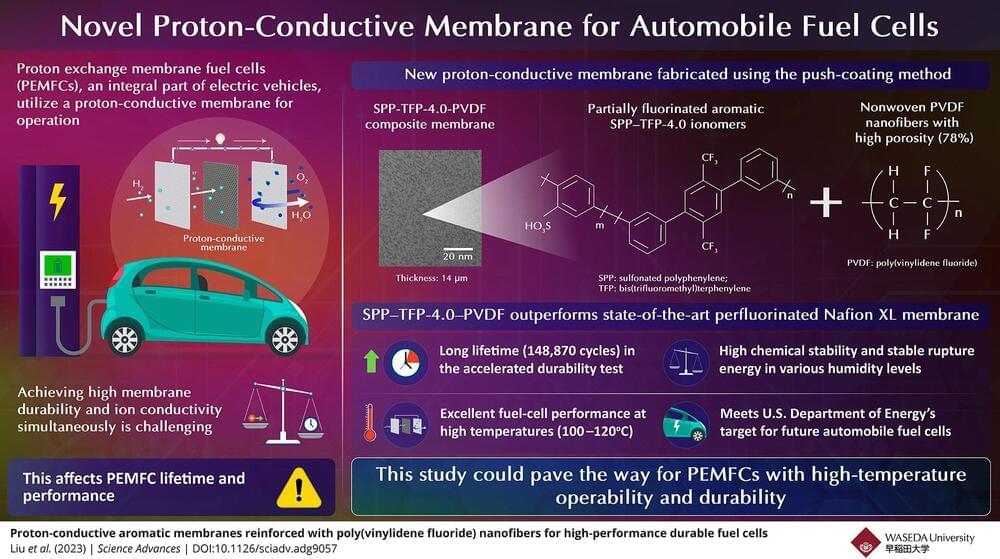Fuel cells are compact energy conversion units that utilize clean energy sources like hydrogen and convert them into electricity through a series of oxidation–reduction reactions. Specifically, proton exchange membrane fuel cells (PEMFCs), an integral part of electric vehicles, utilize proton-conductive membranes for operation. Unfortunately, these membranes suffer from a trade-off between high durability and high ion conductivity, affecting the lifetime and performance of PEMFCs.
To overcome this issue, scientists have synthesized chemically and physically modified perfluorosulfonic acid polymer membranes, such as Nafion HP, Nafion XL, and Gore-Select, which have proven to be much more durable than unmodified membranes conventionally employed in fuel-cell operations.
Unfortunately, none of the existing proton-conductive membranes have fulfilled the highly challenging technical target—passing an accelerated durability test or a combined chemical and mechanical test—set by the U.S. Department of Energy (DOE) to facilitate their use in automobile fuel cells by 2025.
